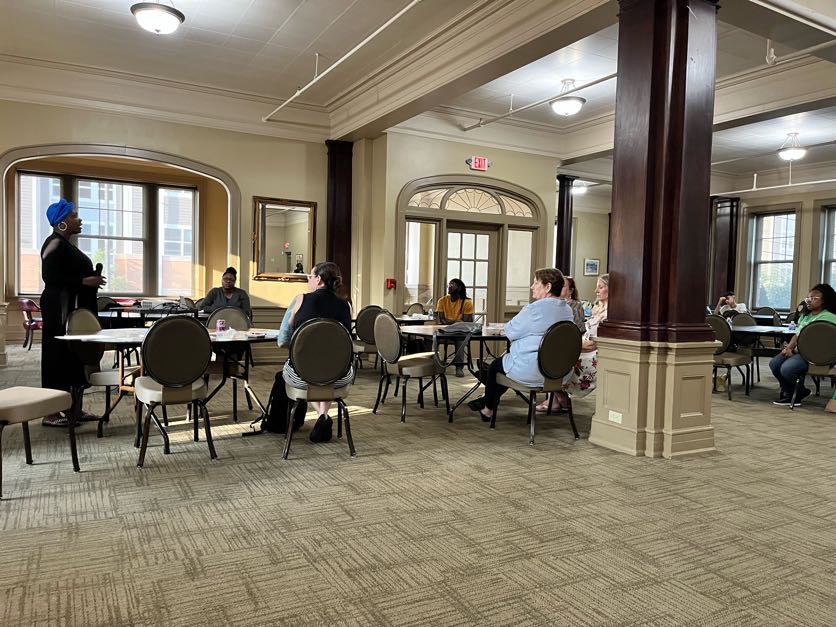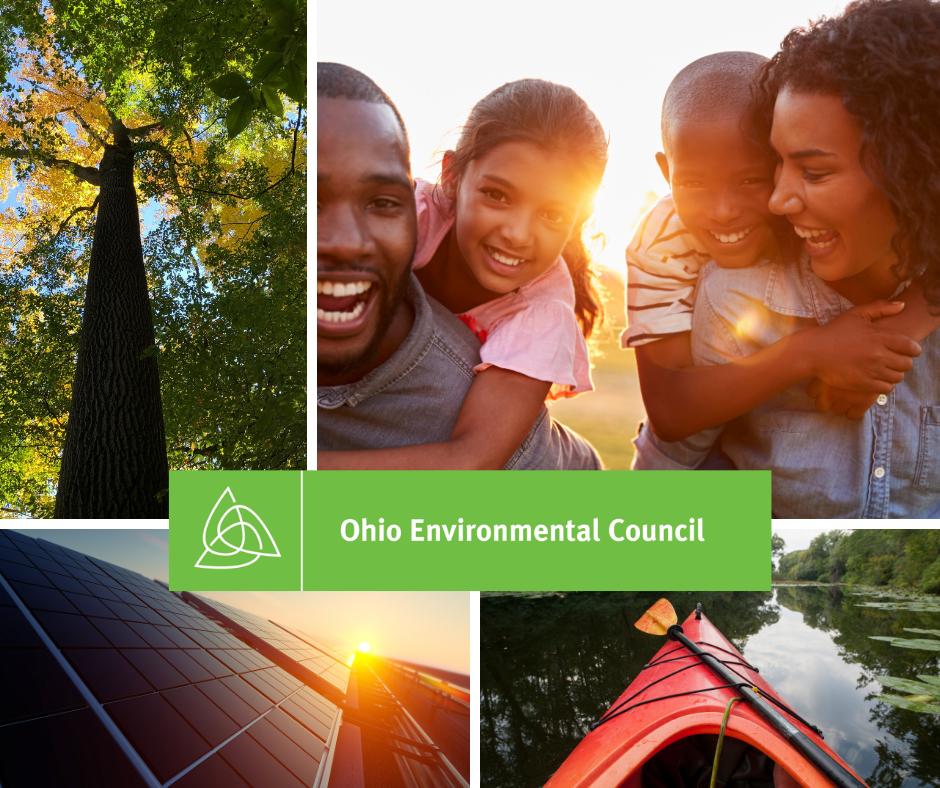Blog
Tagged In: Civic engagement, Northeast Ohio
‘Building A Better Table’ Unites Community Partners to Boost Civic Engagement
Community Foundation of Mahoning Valley, November 1, 2023

The key to any thriving community is having residents that are engaged at all levels and work hard to make where they live the best it can be. But what if people don’t know where to even start doing that work? A local coalition is working to build that knowledge base and foster a new generation of resident leaders.
The idea for Building a Better Table stemmed from conversations between Community Foundation of the Mahoning Valley senior director of community impact Sarah Lowry, Ohio Environmental Council regional director Christopher Colón and Thrive Mahoning Valley director of advancement Vicki Vicars. All three do work aimed at improving the Mahoning Valley and all three have seen the shortfalls of current systems – but also see what can be done well.
“We’ve seen time and time again that no matter how well thought out or supported community initiatives are, we run into the same leadership challenges,” Lowry says. “All of our organizations have a commitment to resident engagement and we all recognize that we continue to rely on the same people all the time. It’s not fair to keep going back to the same people when there are so many people out there doing good things.”
The Building a Better Table group – which includes representatives from the Community Foundation, YWCA Mahoning Valley, United Returning Citizens, We Make Like Better, Trumbull Neighborhood Partnership, Fair Shake Environmental Legal Services and several other community-focused organizations – has hosted two rounds of its Blueprint series focused on the basics of government. Planned for 2024 is the Construction series, which will offer more in-depth discussions for those who have an idea of what work they’d like to accomplish in their community.
At the core of both educational series is civic engagement: showing participants the levers of government and how to use them to make real change, as well as lessons from leaders of local efforts and information on self-care and concepts of power. With leadership from Ohio Environmental Council and Fair Shake, the Construction series will expand on those tenets with a cohort focused on environmental justice.
“The success of the Blueprint series really led to the idea of doing a cohort program with the Construction series, where it’s really tailored to a group of engaged, passionate people and what they want to do,” Colón says.
Part of the success is thanks to the group that has helped shaped Building a Better Table. After Colon, Lowry and Vicars created the program and got it going, more organizations were brought in to offer their knowledge and insights on what needed to be offered.
“Everyone had their own ideas in the beginning, but as we brought in people who were more active in the community or were trying to bring leadership to their communities, we saw that things shifted,” Colón says. “The topics, the structure – it changed to what they wanted to see.”
Adds Vicars: “We want to bring people to the table so they can create their own solutions from their own experience and wisdom. We can’t pretend to know all the answers. If we bring in more people, we gather more perspectives.”
Bringing other groups in – rather than keeping the leadership of Building a Better Table limited to the original creators – also brings crucial information to new people. Lowry points to a Blueprint session in Warren where participant Honeya Price, founder of SWAG Sisters, brought several people who otherwise wouldn’t have been in touch with the program.
“It was because they knew her, they trusted her. They came because she asked them to. Having that direct connection to the community can help us reach others who may not know about or may not have access to the folks at local institutions,” Lowry says, “If it was just us, we know we wouldn’t be reaching and connecting with the people we want to be meeting.”
The guiding principle behind Building a Better Table is that everyday people have the power to make positive change. In their work, every participant in the Building a Better Table planning process have seen firsthand that claims of apathy among Valley residents are far overstated. People want to be invested and to make their communities welcoming, safe and thriving places.
“We all tell people to be informed citizens, but so many things make that immensely difficult,” Lowry says, from systemic issues like voting restrictions to day-to-day challenges like transportation and working multiple jobs. “Building a Better Table wants to give people the skills to figure out what they need to pay attention to, when they need to pay attention to it, and how to do that in a way that’s manageable for them.”
Without a solid foundation of civics education, knowing how to create the change you want to see can be confusing. It may feel like common sense to direct a complaint to the mayor’s office, but maybe the issue is actually something handled that’s at the state level. Or maybe there’s unhappiness with how a local school is allocating funding – but that’s being done because of federal requirements. How government interacts with itself, let alone with residents, can be confusing.
“Growing up in the Valley, I wasn’t exposed to these ideas until much later in life. I want people who don’t have that access to know and understand what’s available to them,” Colón says. “I don’t want them to be past their prime – however they define it – to get involved in their community.”
At its core, Building a Better Table is bringing Mahoning Valley residents to create the community they want to see. “I always told my kids that no matter what you do, you’re either building something up or you’re tearing it down. Are you going to be a builder or a destroyer?” Vicars says. “There’s validity in complaint and concern, but you also need to build something.”
